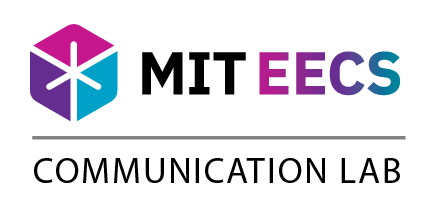Developed in collaboration with Dr. Dan Pomeroy, manager of MIT’s International Policy Lab.
Policy makers are busy people who are often juggling many different projects and priorities at any given time. They are constantly bombarded with policy recommendations from competing constituencies with a diverse set of perspectives. Therefore, most do not have the time to develop deep subject matter expertise or even create original policy proposals. Instead, they focus on being able to quickly learn subject material so that they can evaluate external requests and decide which should be acted on.
When presenting to an audience that is busy or distracted, you must communicate as effectively as possible in the limited time or word count available. Follow the recommendations below:
Research your audience
To do effective outreach to policy makers, it is important to understand what they care about and what motivates them. Look up specifics such as their voting record, position within an organization, past statements on the topic, etc. Learn as much as you can about their agenda, why this topic is important to them, and whether you expect any pre-conceived biases or opinions. Then be sure to formulate your argument in terms that will resonate with them, which is often not the same as what motivates you.
Be concise and specific
- Put your bottom line up front: Policy makers often evaluate the utility of a conversation or document within the first minute. Instead of slowly building to the main conclusion, as you would in an academic paper, it is best to lead with what you want them to do or know and then work backwards from there.
- Be clear and concise: Policy makers tend not to read documents longer than a single page or listen to a talk longer than 15 minutes. Make every word count.
- Make recommendations specific: The easier you can make it for a policy maker to implement a recommendation, the more likely it is that they will act on it. The best recommendations are the ones that tell a policy maker exactly what they should do the moment they walk out of the meeting, all the way through to the final implementation.
Write for a non-technical audience
- Avoid discussing research methods: Policy makers are not peer reviewers. Therefore, they are unequipped and uninterested in evaluating how you performed your research. Use what little time you have to focus on the results of your work and the implication for the audience.
- Find the right analogy to explain the data: The less you can rely on numbers to make your case, the more compelling it will be. Spend time to develop clear analogies to explain complex topics, or use a specific story that exemplifies the data you want to convey.
- Eliminate jargon and acronyms: Each academic field uses very precise language that is generally only understood by people within the field. Therefore it is important to translate your work into simple language that can be understood by the target audience. Also, watch out for words that have a different definition in your field than they do in the general population. For example, “work” has a definition in physics that is completely different from the general definition.
Rehearse your pitches and presentations
Typically you will only get one short chance to convince a policy maker on an issue. Make it count by rehearsing until the words flow naturally.
